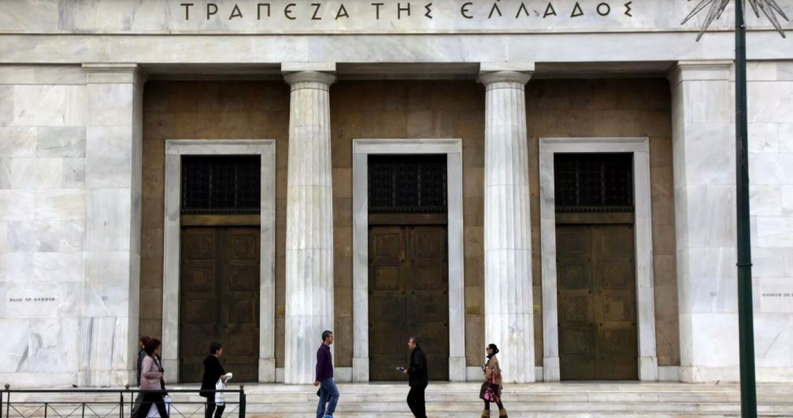The Bank of Greece has revised downward the growth rate projection for the Greek economy for this year.
After the growth rate declined to 2% in 2023 from the initially projected 2.3%, according to data recently announced by ELSTAT, the Bank of Greece now estimates that the country’s GDP will increase by 2.3% this year, compared to the initial forecast of 2.5%. However, the Bank of Greece maintains its unchanged forecast for 2.5% growth in 2025 and 2.3% in 2026.
The revised projections of the Central Bank are included in the issue of the Note on the Greek Economy released today.
The Bank of Greece insists that the risk of further slipping in the economic growth rate is real due to (i) a possible deterioration of the geopolitical crisis in Ukraine and the Middle East with subsequent implications for the global economic environment, (ii) a lower-than-expected rate of absorption and utilization of the structural funds of the Recovery Fund and the EU, and (iii) possible delays in the implementation of reforms, which would hinder the process of improving the economy’s productivity and competitiveness.
On the other hand, positive surprises in tourism and the impact of the economy’s upgrade will contribute positively to the growth rates of the economy.
Regarding developments in the financial sector, the Bank of Greece points out that the announcements of the results for 2023 by the four systemic banks showed an increase in net interest income, which, however, was offset by the decrease in net income from trading and other income, resulting in a moderate decrease in net profits.
According to the announced results, the Non-Performing Exposure (NPE) ratio of the four banks averages around 4%. At the same time, yields on high-security bonds issued by Greek banks decreased during the period under review.
Deposits Decline
The Bank of Greece notes that since the fourth quarter of 2021, the increase in private sector deposits has slowed down overall.
Businesses, as mentioned in the analysis, are using their liquidity reserves in light of higher interest rates. Household deposits have been negatively affected by increased consumer spending, high inflation, and, more recently, the high opportunity cost of bank deposits.
The increase in bank loans to businesses has slowed down since the last quarter of 2022 amid higher interest rates and weakening economic growth. Bank loans to households continue to decline due to the deleveraging of mortgage loans.
Lending rates have recorded significant increases, especially for business loans, following the tightening of the single monetary policy.





































